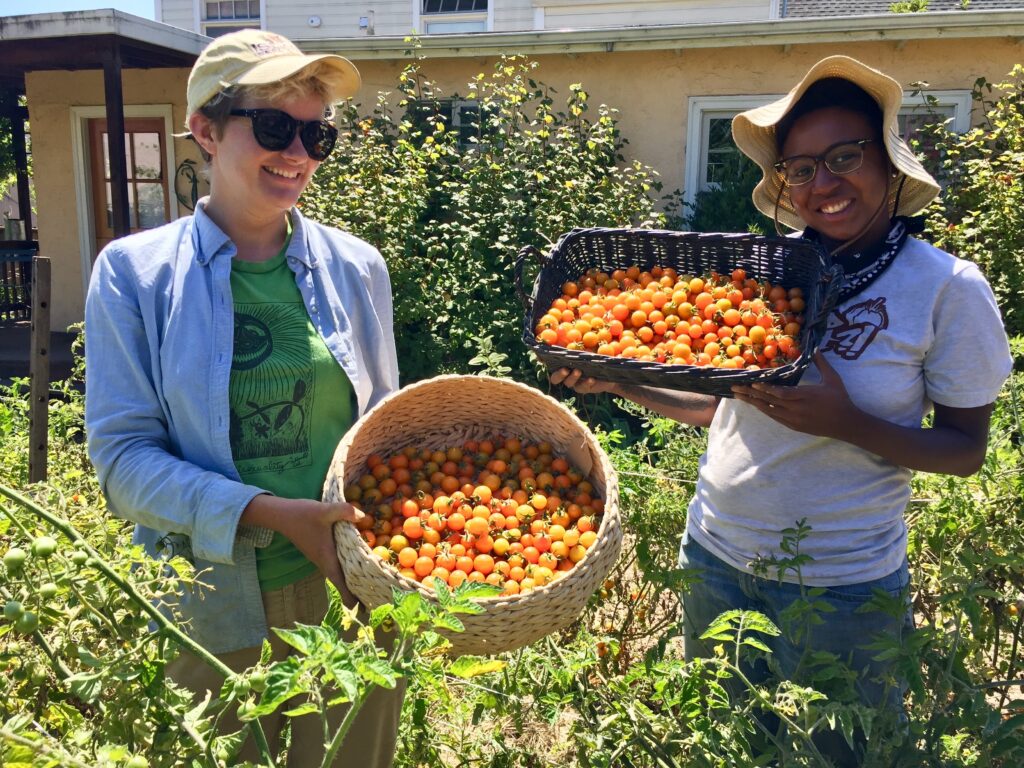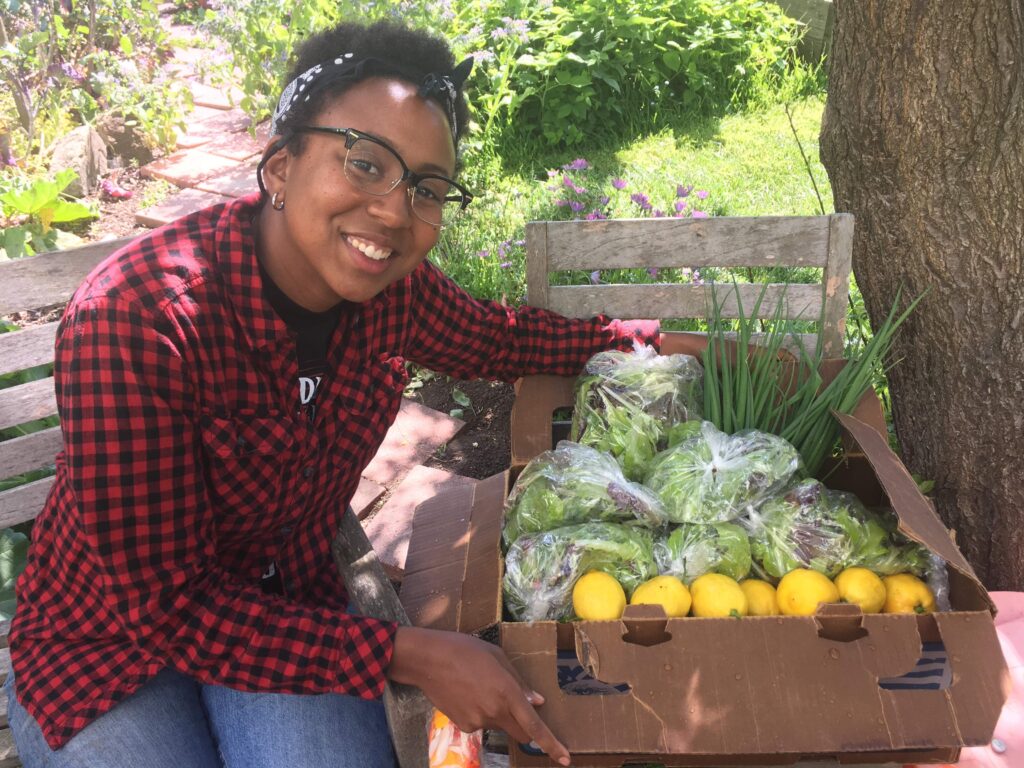Berkeley Basket CSA, owned and operated by Moretta (Mo) Browne and Marianne Olney-Hamel, is a unique urban farm. The farmers grow out of three backyards in the city of Berkeley, CA, made possible by a city law called the Berkeley Edible Gardens Initiative that allows residents to sell food grown in their home gardens. The Edible Gardens Initiative was introduced in 2012, with the support of Berkeley Basket founding farmer Willow Rosenthal and City Council member Sophie Hahn. The initiative allows Berkeley residents to sell produce, eggs, and nuts grown in their yards without a barrier of local permitting—making it significantly easier to begin and expand urban farming ventures like the Basket, within the city.

The Berkeley Basket CSA program is a demonstration project for this initiative, running a CSA for 21 families out of three yards, and expanding each year. As Mo points out, “There aren’t very many people doing what we’re doing, just knocking on people’s doors and saying ‘You’ve got great sun! Can we build some beds back there?’” Local policies like Edible Gardens zoning mean that urban farmers like Mo and Marianne can pursue their dream of providing hyper-local produce to their communities without having to locate and acquire rights to farm on “unused” or abandoned lots with poor soil health and lack of infrastructure.
Now in its eleventh year, the Berkeley Basket operates a mix of in-ground and raised beds growing veggies out of three locations, one that hosts a greenhouse and a wash station donated by the landlord to extend capacity. The income from the CSA covers the materials and almost all the labor expenses to pay Mo and Marianne for their work. The generous land owners whose property hosts farm sites for the Basket have made donations to cover any additional hours beyond what the CSA currently supports. Both Mo and Marianne work off-farm jobs to make ends meet, living in the expensive Berkeley area. On a good week, Mo is able to devote two entire days to the farm but the goal is to grow the business to support them both full time. “I want to be a part of this long term and I need to figure out how to create an extra 14 hours in my week, which does not exist.” This growth would take an enormous leap in both scale and time, and wouldn’t be possible on the generosity of land owners alone.

The farm is currently a community project, but as the farmers look to incorporate as a worker cooperative or nonprofit in order to make it a full-time job, they will be up against new challenges of urban agriculture and backyard farming for a living. With many more households reaching out and offering their backyard gardens to contribute to the Basket, Mo and Marianne are looking at worker-owned cooperative models to build in the community support and engagement central to their model. “We are at capacity, and I don’t want to turn people away.” Mo is looking to include landowners by supporting them with expertise in what they want to grow for their own households, and in exchange, the landowners make a commitment to grow certain crops for the CSA for a period of time in order to contribute to the neighborhood’s food security.
Incorporating will give Mo and Marianne access to USDA programs that support farmers to scale up and run their businesses for a living, although many programs have yet to be adapted to the small scale, and limited land base that urban farmers like Mo are working with. Continued support from local policies like the Edible Gardens zoning changes in Berkeley make that initial business start-up possible for many urban farmers and aspiring urban farmers.
Policy Change to Support Urban Agriculture
Urban farmers like Mo grapple with high land values, insecure tenure, lack of water access, legal challenges, and zoning barriers on top of contending with contaminated soil. Policy changes at the federal level, state, and local levels however, hold hope for making this important endeavor more possible.
The 2018 Farm Bill recognized the emergence and importance of urban agriculture by creating a new Office of Urban Agriculture and Innovative Production at USDA and authorized new grant, research, and risk management programs to support urban growers and help expand the sector. In 2020, the new USDA urban agriculture initiative awarded over $4 million through a competitive grant program to support programs led by nonprofit organizations, local or Tribal governments, and K-12 schools for the development of urban agriculture and innovative production activities. USDA has also created a new opportunity to directly hear feedback from urban farmers through Farm Service Agency County Committees focused on urban and suburban agricultural issues.
States have the power to enact change in support of urban agriculture as well. California Assembly Bill 551, the Urban Agriculture Incentive Zones Act, was pass in 2013 and incentivizes the use of private land for urban agriculture by providing lower property assessment rates to landowners who sign a contract placing their land in urban agriculture for ten years.
At the local level, a number of cities besides Berkeley have adopted favorable zoning and other laws to encourage urban agriculture. Examples include Article 89 in Boston’s zoning laws, which aims to comprehensively reduce zoning barriers to commercial urban agriculture, and the 2015 D.C. Urban Farming and Food Security Act, which provides property tax reductions on urban land dedicated to farming and opens up leasing opportunities for farmers on publicly-owned urban land. Other programs, such as Pittsburgh’s Adopt-a-Lot policy and St. Louis’ Garden Lease Program, provide site use agreements to access city-owned vacant lots for greenspace and agriculture.
More policy change like this is needed at the local and federal level to establish new initiatives, adapt existing programs, and reform zoning in order to support smaller scale urban farmers with more room for land flexibility.
Photos courtesy of Mo Browne
